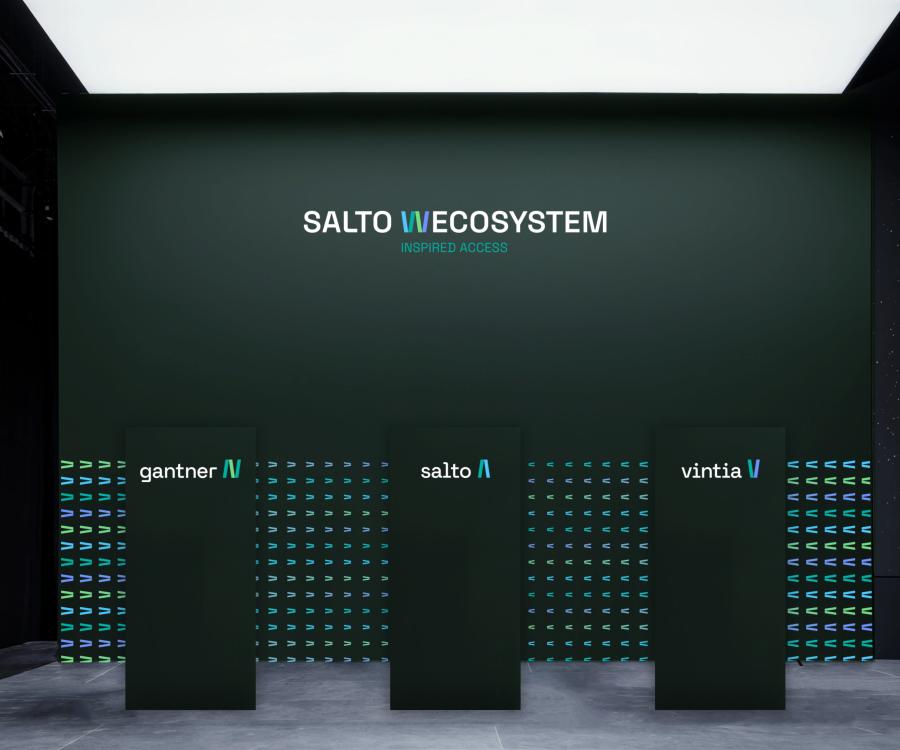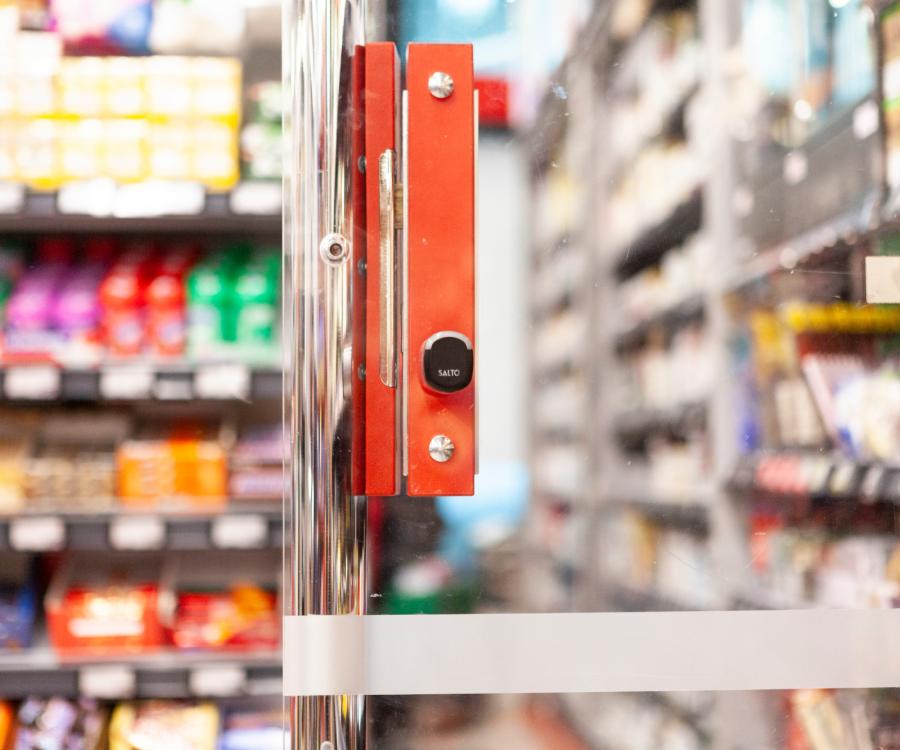
Gunda Cassens-Röhrig is the Divisional Manager of Workforce Management and Security as well as a member of management at GFOS mbH. The combination of human resources management and security is no accident: you can not only monitor access authorization at the entrance, but also time and attendance. GFOS provides application development and integration for multidimensional resource management systems for all different kinds of industry sectors. The company points to more than 3,000 installations worldwide.
How do you rate the willingness of the retail market to invest in security?
Access control systems do not just make sense for companies with high security areas, but are generally of utmost importance. Individually configurable access controls support operating processes and protect valuable company information and of course also goods and assets. That is why the willingness of retail to invest in security definitely ranks high on the priority list. Especially the protection of storage rooms, staff entrances and office spaces are principal requirements in retail to deter unauthorized access, obstruction and theft.
Security plays a big role in retail, but due to more flexible shopping hours or generally more flexible hours in the working world, more efficient solutions for personnel placement in retail have also become ever more important. This is where we apply our special “gfos.Retail“ solution. Retail is perfectly positioned with a workforce solution that is specifically adapted to retail in combination with our security solution “gfos.Security“.
Security concepts should be integrated. How do you find a qualified service provider?
At GFOS, we keep experiencing that customers want one-stop solutions. This is why we specialized in offering integrated IT solution concepts. Our advantage over other service providers is the fact that we are not just offering time recording, workforce management, access control or logistics solutions, but also modular software that can be configured module by module as required and tailored to the respective customer. In addition, we collaborate with different hardware partners, so that we are able to offer the hardware that is optimally aligned with our software and for the customer not needing to deal with a separate contact person. In addition, GFOS does not just deliver software and hardware, but also develops security concepts and access matrices.
How does Business Intelligence assist with security analysis?
When it comes to questions of security, Business Intelligence means to uncover information about access data as well as weak spots in corporate security and determine room for improvement. Such projects exist in all industry sectors and also in retail. In the area of security, the analysis of existing data, a link to data warehouse systems and the evaluation of all security relevant data are important parts of Business Intelligence.
Let’s pick one aspect: access control. What kinds of innovations are there?
Lots will happen in the future in the area of access control. In biometrics for example, we are just starting out. This does not solely refer to the current lack of acceptance in many cases, but mainly to technology. The procedures need to become faster and safer. The error rate for fingerprint scanner programs and the error rate for reading the fingerprints, particularly for larger data volumes are still too high for instance. I am sure that lots will happen in this area.
Access control today is no longer a mere “door opener”, but an overall solution to increase and monitor corporate security. That is why total solutions that are useful for all company divisions are in demand. In the area of access control, these are for example additions like parking enforcement, security control station and video surveillance. All requirements should be integrated with a good solution to avoid interfaces between systems as much as possible.
How can software help prevent manipulation?
You should pay attention to the fact that individual authorization profiles are freely definable for individuals and groups of people based on local and chronological criteria. What this actually means is that only selected employees can gain access to particular areas. Visitors can obtain access authorization for a specific limited period. Via door man monitoring you can ensure that the card user is also the same person as the badge holder. You can also conduct spot checks via an integrated random generator to where access or exit is only possible after an inspection of the person. Great software needs to record all access, door openings and closings, attempted manipulations such as break-ins, sabotage as well as all changes in access authorization to hold up to audits.
Access can be perfectly combined with time recording. What does this look like in practice in retail?
Planning in retail is still a big problem. Many retailers still work and plan with Excel, which means a large manual effort. Fair and efficient staff assignment is getting more and more difficult with increasing headcount. Excel solutions simply fall short in terms of today’s requirements.
Especially in chain stores, optimized workforce planning is a must. Various aspects need to be considered here that can barely still be done manually. Opening hours, special promotion days, seasonal impact and delivery days are just as much a part of this as statutory provisions and regulations for collective bargaining and employment agreements. Performing the planning and the resulting assessment manually or in Excel invites errors and is time-consuming. Employee satisfaction is reduced by accounting errors that occur during transfer into different lists and manual accounting. The same is true if workforce planning is not done with documented and fair criteria.
What kind of time registration do you recommend for chain stores?
Many types of time registration are of course also applicable for retail. Nevertheless, the hardware for time registration in retail is less used, especially in smaller chain stores. In many cases, so-called “time-data collection per exception” based on a prepared operation schedule takes place. The person in charge of the store retroactively records only deviations. Apart from that, alternative solutions to log time are being pursued, for instance an entry at the cash register or on a web-based terminal.
What should smaller retailers do to gain more security? For which solution does a concept pay off?
Investing in security always pays off, even for smaller retailers. Developing a conceptual design to determine needs, safety requirements and demonstrating possible solutions to increase competitiveness, security and optimizing human-resource allocation to ensure customer satisfaction, is especially recommended for smaller retailers to weigh capital expenditure and profits and to provide decision-making support.
Interview by René Schellbach, EuroCIS.com










